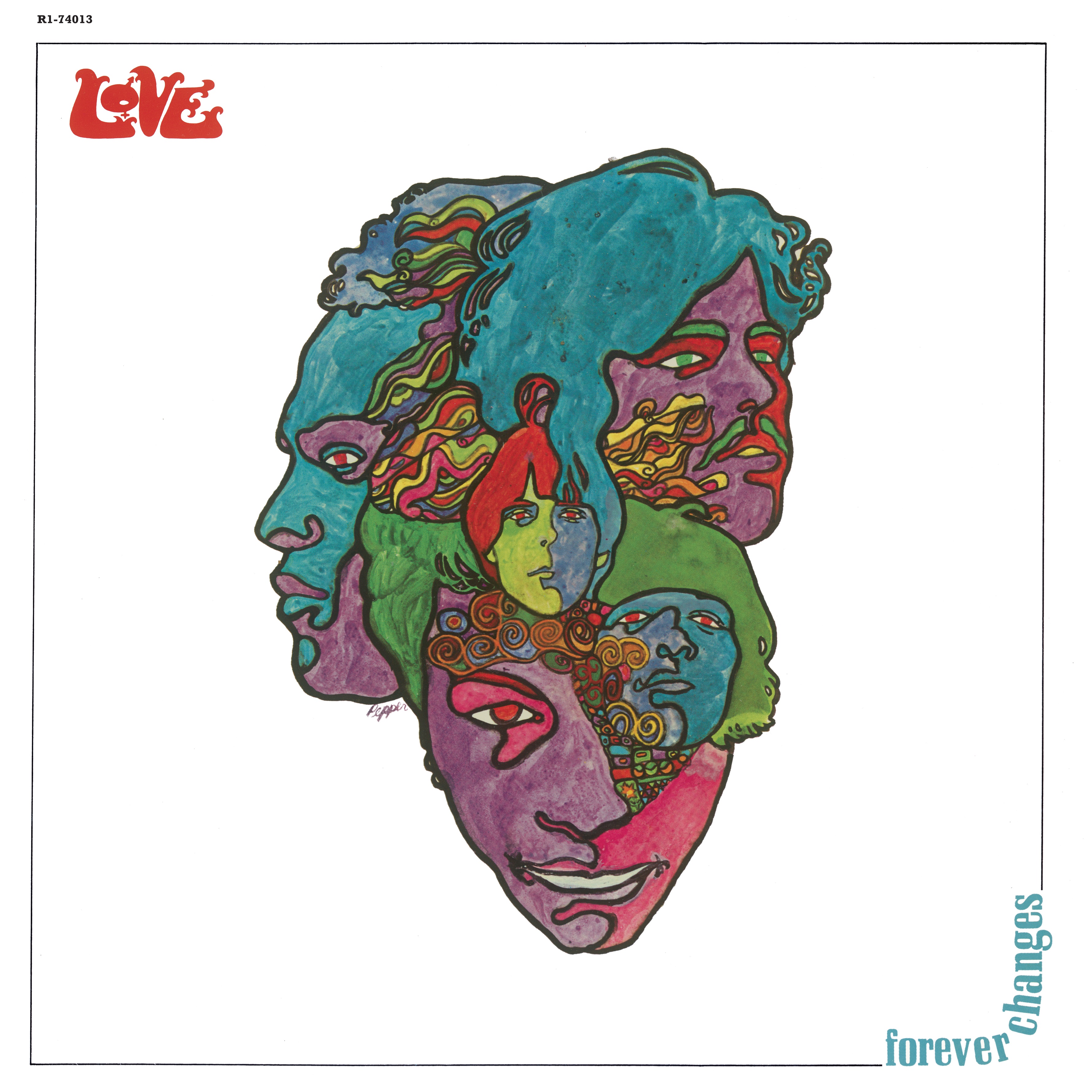Forever Changes - Love (1967)
This album is the greatest album ever.
"And More Again, the third song in the album is a softer ballad, which included the recurring theme of depression "And I'm lost in confusions". Although it may be a depressing song, at times it is also as loving as the album gets "You don't know how much I love you".
First a little background on Love and why you probably haven't heard of them.
They were led by the singer/songwriter Arthur Lee, who was one of the most prominent musicians in Los Angeles in the late 60s (He also played in bands with Jimi Hendrix and Billy Preston pre-fame.)
Love are famous retrospectively for being one of the first major racially integrated bands, but despite this during the 1960s they were unknown outside of LA, and partially due to this their pre-Forever Changes albums Love (1966) and Da Capo (1966) both failed to sell internationally and domestically, forever condemning them to a cult band status.
Lee eventually died in 2006, but by that point Love were critically acclaimed internationally, but he would never create a masterpiece that equaled Forever Changes.
Forever Changes is largely seen by modern critics as the album which revealed the dark side of the summer of love and the album that predicted the violent end to the era of peace & free love (see the Rolling Stones at Altamont.)
The album starts with the most beautiful and evocative song ever, Alone Again Or, which was written by the second guitarist Bryan Maclean. The song paints a glorious image of the summer of love and suggests the weaknesses of the scene with lyrics like "Alone again tonight my dear".
The beautiful arpeggio help give the song a hispanic feel and the brass section of the song give Alone Again Or a sense of grandiose and pretence which was what the Summer of love was full of.
The second song of the album is A house Is Not A Motel which is fuller of electric guitar than Alone Again Or and gives the song a harder, more rocky edge. "The news of today will be the movies of tomorrow" highlights the summer of love more, and also is revealing of Arthur Lee's love of LA "streets are paved with gold".
"And More Again, the third song in the album is a softer ballad, which included the recurring theme of depression "And I'm lost in confusions". Although it may be a depressing song, at times it is also as loving as the album gets "You don't know how much I love you".
The fourth song, The Daily Planet, is a softer (very American) song, with harmonies which coax the listener to sing along, regardless of how non-sensical the lyrics actually are, which shows the importance of Maclean on this song and how his Broadway-Space-Folk inspired Arthur Lee.
Old Man, the fifth song, is another soft beautiful emotional song written by Bryan Maclean. The song, with it's religious undertones, is based upon Maclean's broadway-folk style of music, and its classic inspired melodies and spacey folk tones helps make the songs one of the most elegantly touching moments on the record.
The sixth song, The Red Telephone, is steeped in Love mythology, with fans claiming it was a physical phone which the band used to throw about while it is also hypothesised that the phone is representative of the White House's hot line to Moscow in the height of the Cold War. Throughout the song Arthur Lee deals with themes such as Paranoia, Estrangement, Depression, Death, and Societal change, with perfect musical accompanyment.
Perhaps the most hopeful song on the album is Maybe the People Would Be the Times or Between Clark and Hilldale. This energetic song is supported by a brass section which energises the song and gives it indescribable amounts of power, and regality. The song also fits in perfectly with the crazy, mad LA Scene which it is describing, although it also portrays a sense of unease which could also be seen in the LA scene.
Arguably Love's biggest political song is Live and Let Live, which can be seen as a microcosm for the album as a whole. The song comments on war, violence, social injustice and includes the best guitar freak-out in the whole album which breaks away from Love's usually classical-influenced sound and links Love to the 60s psychedelic guitar experimentation headed by Lee's former collaborator Mr. Hendrix.
The Good Humour Man He Sees Everything Like This is mainly structured is a mix of Lee's signature Classical-inspired-Space Folk and Maclean's Broadway Space Folk. This is arguably the simplest song on the album as well as it challenges the societal concepts of Love and nature.
Bummer In The Summer is perhaps the most jolly and Rocking sounding song on the album, but rather it is full of spiteful lyrics "I did everything i possibly could for you", "Putting you down for being around with me. This song has some of Arthur Lee's most Dylanesque lyrics.
The final song of the album You Set The Scene is perhaps the greatest song on the album. This song is perhaps one of the most technically complex songs on the album, using Lee's usual classical-gradeuse space folk as its main basis. The song is basically two songs together in much the same way as The Beatles' A Day In The Life (Released in the same year as Forever Changes.) Alike all the songs in the album this song focuses on the concept of purpose in life.




Comments
Post a Comment